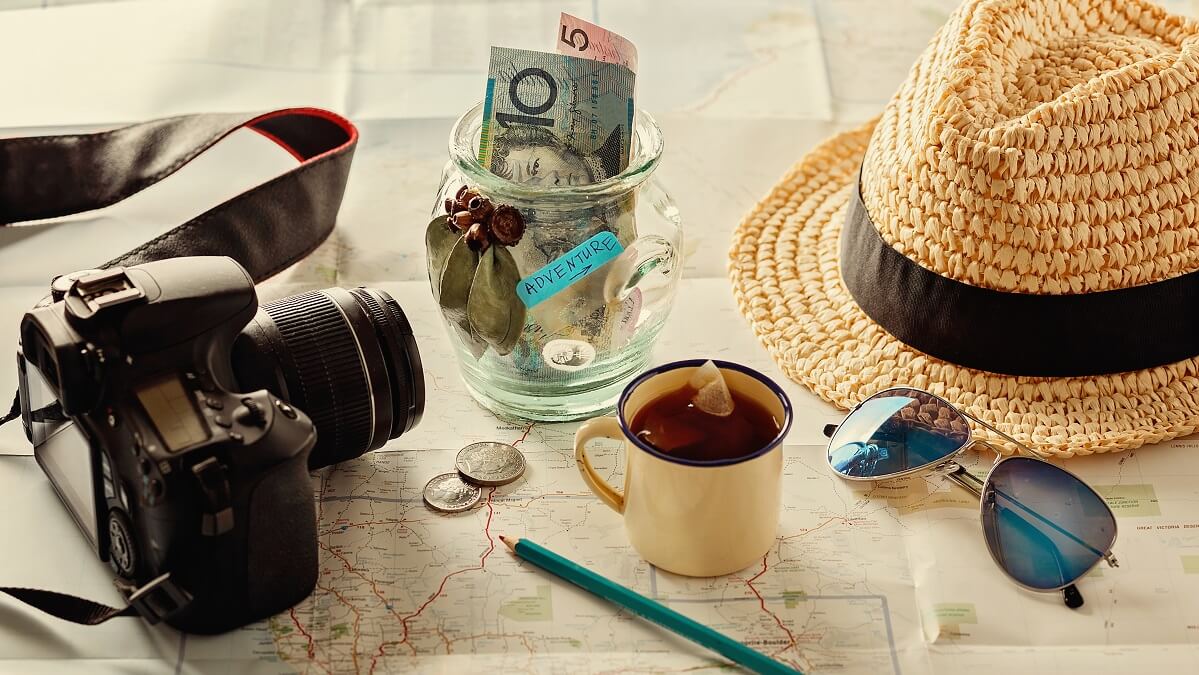One of the biggest stress points in travel is money.
It’s expensive to travel, accommodation and flights are an enormous cost to your trip, but so is your everyday spending money.
It seems everywhere you turn, there is another fee, especially overseas, so why not use our guide to get the best out of your trip?
Go local
Do a bit of research on how the locals spend their money. If cash is king, don’t take your ATM card and hope for the best, buy some currency before you go.
And it goes without saying, wherever you are, don’t be waving great wads of cash around, you are just asking for trouble. It’s harder to do when the currency is one of those with tonnes of zeroes on the end, but do your best to be discreet.
Read: Five essential road trip gadgets
Check if your bank has offices in the major cities (we weirdly found an ANZ bank around the corner from our Ho Chi Minh City hotel, which solved a lot of problems) and if you can use your ATM card in other foreign banks.
Exchange rates
Don’t we all wish there was a one-stop shop for the best exchange rates? Seems like a no-brainer, but we can’t seem to manage it.
It’s one more of those situations where it pays to shop around.
For the convenience factor – and if you are travelling on short notice – your local post office will often carry more popular currencies such as the US dollar and the UK pound, but otherwise the internet is your friend, so start searching.
And as well as comparing exchange rates, also take note of the fees that can vary widely. And if you are using an online agency such as S-Money, take into account the delivery fees if you are using that service.
Read: Money-saving tips from travel agents
It also pays to consult a travel agent, they may have some tips that could save you hundreds.
You will probably get your worst rate at those airport booths, but if you only have a small amount of currency – particularly on your return trip – often the convenience factor will win out over saving a few dollars by spending time finding the best rate.
You can order money online to a Travelex airport shop for a better exchange rate.
They will carry many popular currencies, but if it’s a bit more obscure, be aware it will take three to seven days to arrive. It may pay to ring ahead to see if your currency has arrived in this situation. You don’t want to get to the airport only to realise you won’t have any cash for your trip. Mood killer.
Travel debit cards
Using your usual debit card overseas will suck cash out of your account. Take a sum of money out of an ATM and as well as an overseas currency conversion fee you will probably be charged an ATM fee and maybe even a fee for using your card overseas.
There’s no ATM fee when paying for goods and services, but there will be a conversion fee. This all adds up if you are grabbing a meal and drink or three every day.
Your best bet is to set up a travel debit card. They don’t charge currency conversion fees or overseas ATM fees, and many have a relatively high interest rate.
Read: When to hire a tour guide
Travel money cards
Great for the keen budgeter. Load it up with cash, lock in an exchange rate and away you go.
It has the advantage that if you see a bargain exchange rate months before your trip you can ‘buy’ some money to load up the card and lock it in.
According to financial comparison site Canstar Blue, travel money cards are widely accepted and if they are lost or stolen can be replaced.
They can offer low transaction fees and offer exchange at the interbank rate, which is the rate banks use when trading with each other, which can potentially save hundreds.
Once again, do your research. There are some creative fees attached to some of these cards, including an ‘inactivity’ fee for some, where they slug you $4 per month if you haven’t used the card after 12 months or fees to close the card.
Credit cards
Convenient option – who doesn’t have a credit card – but as in Australia, avoid using them to get cash. Cash advance fees are incredibly high wherever you go.
Another advantage of credit cards is that some offer reward points for your spending, which could go towards your next trip.
And lastly …
- Always remember to let your bank know if you are travelling overseas, or even to a far-flung Australian destination. This can be done online.
- Have a back-up plan. If your debit card gets stolen by brazen pickpockets, make sure there is another way to access your money, and ensure you have all your banking contact details so you can cancel any cards.
- Don’t rely on one source of money. Debit card, credit card and cash will cover all eventualities.
- Know how to reload any of your cards. Been shopping like it was an Olympic sport? Good for you, but make sure you can reload your sad, drained card because you might need it for later.
What’s your strategy when it comes to foreign currency? Why not share your tips in the comments section below?

